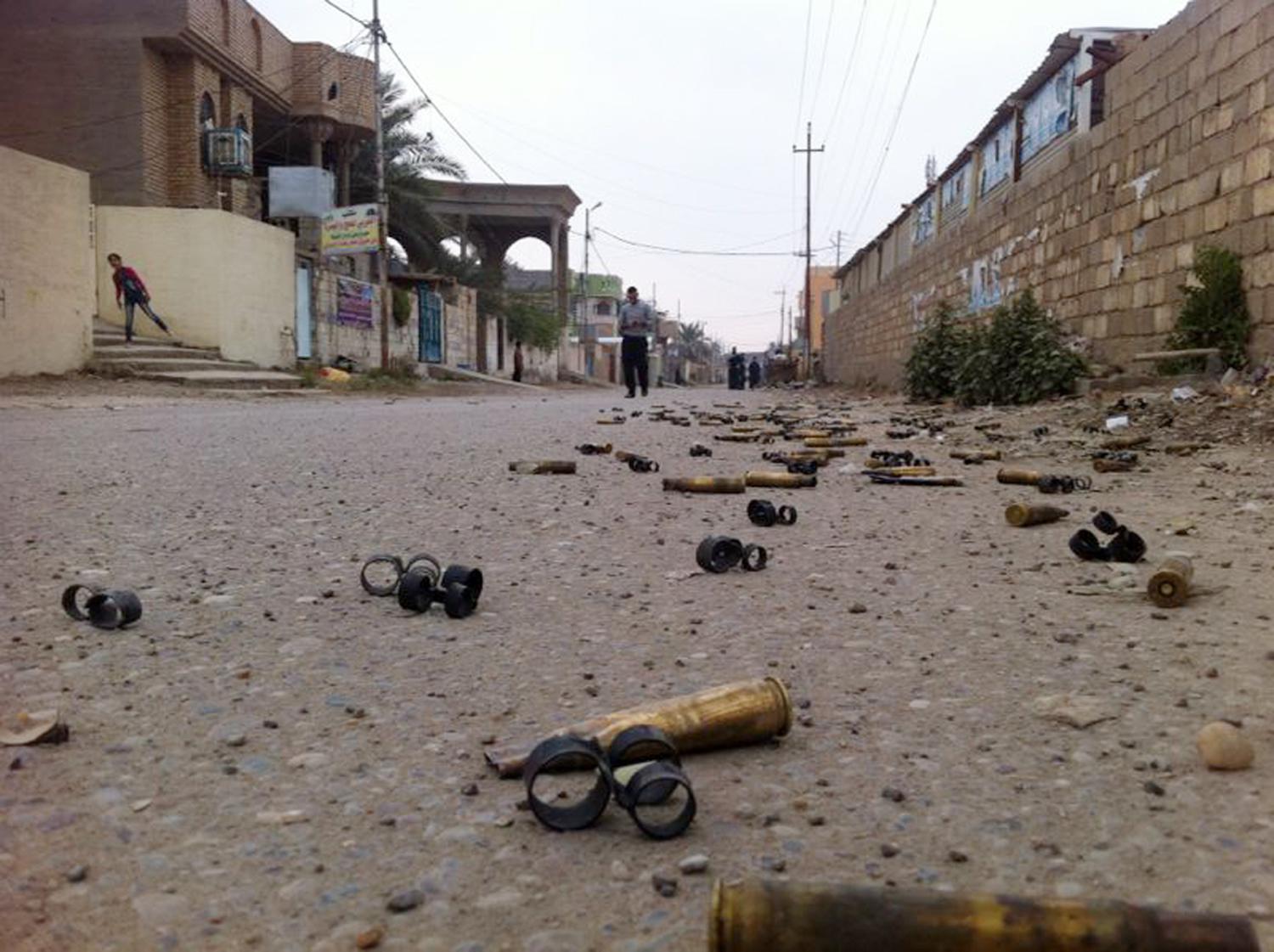It’s understandably difficult for outsiders to keep a handle on the fractal-like proliferation of actors in the Syrian conflict. In 2011 the conflict could be viewed as one between government forces and “rebels.” Then U.S. policy began drawing a distinction between moderate and Islamist rebels. Then there were reports of the U.S. negotiating with “Islamist” rebels but not those linked with al-Qaida. But even within the rebels commonly referred to as “al-Qaida-linked,” there are at least two important groups.
One of the biggest stories in both Syria and Iraq in the past year has been the rises of the Islamic State of Iraq and Syria, or ISIS. (The group’s Arabic name actually translates to the Islamic State of Iraq and al-Sham, a term that refers to Syria and the broader Levant region, so it is sometimes referred to in English as ISIL.) Technically formed less than a year ago and boasting only about 6,000 to 7,000 fighters, according to most estimates, the group has emerged as a key player on the ground in Syria, maintaining a stronghold in the northern city of Raqqah, as well as Iraq, where last week it captured the cities of Fallujah and Ramadi.
As journalist Sarah Birke notes in a recent profile of the group for the New York Review of Books, ISIS originated as the al-Qaida offshoot al-Qaida in Iraq, the group once led by Abu Musab al-Zarqawi, killed by U.S. forces in 2006. Since 2010 it has been led by the veteran Iraqi jihadist Abu Bakr al-Baghdadi, who currently has a $10 million U.S. bounty on his head.
In 2012 fighters affiliated with AQI arrived in Syria to found the rebel group Jabhat al-Nusra, which has fought against the Bashar al-Assad regime as well as the more moderate, U.S.-supported Free Syrian Army.
In April of 2013, al-Baghdadi decided to merge the two groups, forming ISIS. However, the move has been rejected both by leaders of Jabhat al-Nusra as well as the increasingly marginalized global al-Qaida leader Ayman al-Zawahiri, who ruled that the two groups should remain separate (a ruling Baghdadi has apparently ignored).
Nusra fighters tend to be Syrian and, despite their links with international jihadist groups, are more narrowly focused on the goal of overthrowing the Assad regime. ISIS fighters tend to be more international, and are more focused on the establishment of a larger caliphate and the enforcement of their brutal form of Shariah law in the areas they capture.
As Borzou Daraghi of the Financial Times put it yesterday:
It does not just take over villages. It repaints government buildings black, hands its fighters ministerial titles and puts them in charge of enforcing its austere vision of Islam. It speaks of Syria, Iraq and even Lebanon as one theatre of operations and boasts of its activities in all three countries.
And those who defy the Islamic State of Iraq and the Levant, known by the acronym Isis, “wind up in one of their dungeons or dead or anywhere in between”, said Aaron Zelin, an expert on jihadi groups at the Washington Institute.
Birke describes the chances it has instituted in Raqqa in the past few months:
The group beheaded three Alawites in the city’s central square, and established sharia courts and policing. Abdullah al-Khalil, the head councilman, was himself kidnapped by ISIS or its allies. Women have been told to cover up, smoking banned, and girls and boys segregated in school. Minorities have been hounded out of the city, and foreign journalists and aid workers are no longer welcome: dozens are currently in ISIS captivity.
According to some analysts, the group now appears to be stretching its limited resources somewhat thin. Amid deadly clashes with other rebel groups, including Nusra in Syria, it has had to turn to suicide bombings to maintain its stronghold in Raqqa. More moderate—speaking very relatively here—now appear to have the upper hand.
On the Iraqi side, the government has launched a military assault, including airstrikes, to retake Fallujah and Ramadi, and likely will though ISIS may simply fade back into the desert regions of Anbar province to regroup.
All of this, suffice to say, plays into the hands of Bashar al-Assad, who has sought to portray the opposition as a whole as made up primarily of foreign religious extremists ahead of peace talks in Geneva this month. On the international stage, with Western powers now looking at Syria more as a potential security threat than a human rights/democracy issue, ISIS may be the most valuable ally the Syrian government has right now.
